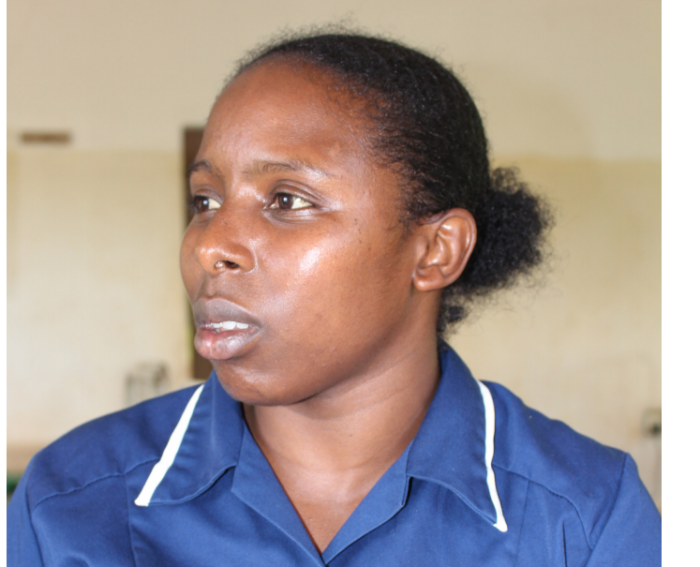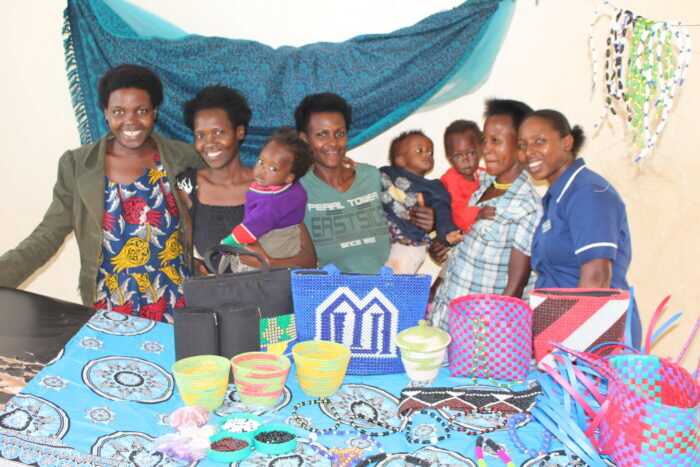
“In the past we had aunties, called shwenkazi,” says Nurse Merab Sanyu, a midwife in southwest Uganda. “But they are now [intimidated] by young women who are on the move, living faster than they did at the same age. As the community is [becoming more] modern, young girls get advice from each other.
“The older women in the community who used to give wisdom are not involved or equipped with the right health information to address the problems,” says Sanyu.
“[Some young women] run away from home with boda boda [motorcycle taxi] drivers who attract girls with their money and fast lifestyle. Soon they fall pregnant, sometimes without testing for HIV. Then violence sets in along with money challenges.”
As a midwife, Sanyu had been worried about the young mothers who were coming in too late for antenatal care, putting their babies and themselves at risk of several illnesses especially HIV. She is also concerned that many young women do not have anyone to go to for premarital counseling or other life wisdom.
Nurse Merab Sanyu was concerned that many young women do not have anyone to go to for premarital counseling or other life wisdom.
To help reach adolescent girls and young women in her community, Sanyu was trained in the comprehensive, DREAMS curriculum targeting 15- to 24-year-old adolescent girls and young women. DREAMS is part of the USAID RHITES-SW project implemented by the Elizabeth Glaser Pediatric AIDS Foundation (EGPAF).
The DREAMS (Determined, Resilient, Empowered, AIDS-free, Mentored, and Safe) partnership is a public-private partnership to reduce rates of HIV among adolescent girls and young women in the highest HIV burden countries. In 2015, 10 DREAMS countries in sub-Saharan Africa, including Uganda, accounted for nearly half of all the new HIV infections that occurred among AGYW globally.

As the focal person for DREAMS, Sanyu has been keen on educating young women about testing for HIV and other sexually transmitted infections—along with educating them about malaria, nutrition, and maternal and child health. She also helps the girls educate and support their romantic partners when it comes to HIV testing and prevention. Many husbands pick their condoms from her and also receive counseling because she is now a trusted auntie.
All the mothers in the DREAMS group have delivered their babies at the health center, received prevention of mother-to-child HIV transmission (PMTCT) services, and are attending or have completed antenatal care.
All the mothers in the DREAMS group have delivered their babies at the health center, received prevention of mother-to-child HIV transmission services, and are attending or have completed antenatal care.
Auntie Merab also counsels young women and their partners about how to prevent gender-based violence. The approach, called SASA, is built from the Kiswahili word “now,” emphasizing the urgency. In English it is an acronym for Start, Awareness, Support, and Actions, representing the key steps that the community can take to mobilize against sex- and gender-based violence.
The DREAMS Lite program in Uganda also borrows from the Sinuvoyo teen parenting program in South Africa so that young mothers can be successful parents.
Auntie Merab also promotes the Stepping Stones approach, which focuses on young women taking actions together for lasting change. The group loves Stepping Stones because it strengthens female culture through togetherness—fetching water together, cooking together, supporting each other to reach their goals.
“I tell the girls they are not alone,” says Sanyu. “Their favorite example is if they needed to cross a river full of crocodiles it would be easier for the group to follow one another, if one steps on a stone and finds it works then they can pull the next person to cross over to the next stone until they conquer the entire river,” Nurse Merab says as she demonstrates the run.
Through Stepping Stones, the adolescent girls and young women have been introduced to village savings and loans associations and livelihood skills like weaving, baking, hairdressing and craftmaking. The group has become the go-to source for baskets, jewelry, and bags—including the church ladies in the Mothers’ Union, an elite Christian group. The DREAMS girls have created an admired brand, and they sew their logo into the handbags they sell. The baskets include special millet baskets used as part of the wedding ceremony in these parts.
The DREAMS Lite group is linked to community leadership and is accountable to them. Nurse Merab is sure to update the registers to track progress of members.
Auntie Merab has applied the principles from DREAMS in her own life. She practices self-reflection on her own responses to others, handling anger and she has become a super entrepreneur herself teaching women in the community to improve their lives.




